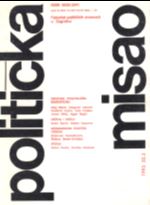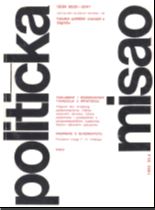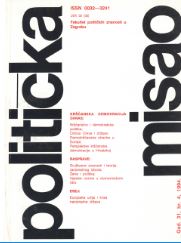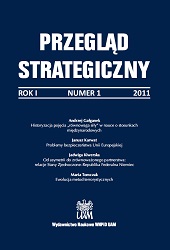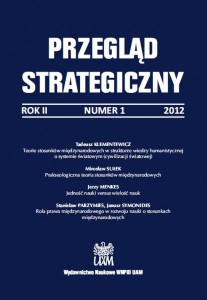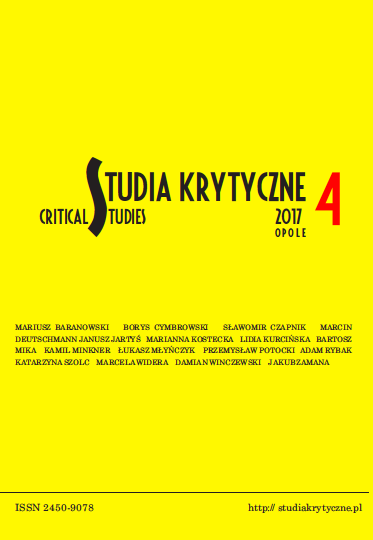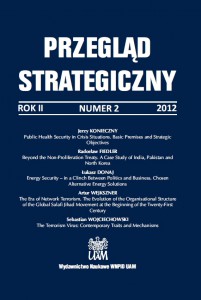
Idea demokracji w filozofii społecznej Karla R. Poppera – racjonalistyczny mit nowoczesnej Europy
The article presents a sketch of Karl Popper’s philosophical opinions. Popper belongs to those philosophers who came to strictly philosophical questions from problems concerned with the natural sciences. This development of their thought has particular consequences for their philosophical style. On the one band – as one can note in Popper – their philosophy is one which is low on poetic turns of phrase and high on logical rigor. On the other hand, their thought is characterized by a greater dose of certainly, of an apodictic tendency even, than is that of those philosophers who, educated in the traditions of the humanities, are more burdened by the weight of tradition. Such an attitude has perhaps two consequences: it leads either to the trivial repetition of other people’s insights or to a certain unquestionable originality. The author maintains that, in the case of Popper, we are dealing with the second eventuality. In the article he presents chosen elements illustrative of the originality of Popper’s thought.In Popper philosophy the rational is always contradicted by the irrational. And the ‘despair of reason’, as he states, always leads to limitation of freedom and closed society. So the alternative is based on dramatic choice: ‘reason or violence’ or/and ‘reason or revolution’. The reason for Popper is - in fact - the same as humanities. Historicism, the way of thinking in historical categories, is exempt from thinking because it is based on firm rules and thus its result is totalitarianism. Here is the focal point of Popper’s thinking - his a priori established faith in reason implies a certain type of humanism; the one who believes in the unlimited possibilities of man whose chief weapon becomes reason. We believe in reason – that is a dogma. And reason enables criticism (critical rationalism), that is a falsification of (any) theory. That’s why the social science has an inevitable conjectural character. Popper’s methodological individualism that is based on belief in his own reason is a dogma as well. The only way out to deprive reason of its irrationality is to place it in the horizontal and not the vertical perspective, on the level of practical life, in between individual men. After the Holocaust there is nothing ‘above’ or ‘beyond’. Our decisions are rooted in already reason-guided life, and so are the political institutions – not in a meta-level rationalism.
More...
